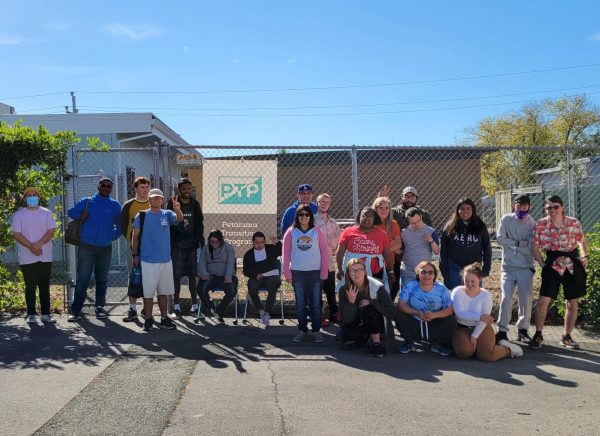A Million Lives, One Vaccination

Photo by Grace Yarrow
In 2015, a measles outbreak linked to the Disneyland theme park in California infected more than 130 people. In 2011, France experienced a massive measles outbreak with nearly 15,000 cases. In 2013, whooping cough infected 24,000 people in the U.S. In a time of advanced technology, extensive medical knowledge, and a variety of ways to combat disease, people still fall sick and many lose their lives due to diseases that can be prevented and eradicated with vaccines. Although some may fear them and others may just be uneducated about them, vaccines are essential to what the World Health Organization (WHO) calls “herd immunity.” Herd immunity is the idea that the safety of a whole population relies on people having vaccinations in order to protect those who can’t have them. Children who are too young to be vaccinated as well as people who have autoimmune diseases rely heavily on herd immunity to prevent them from coming into contact with and contracting these illnesses.
Despite the importance of them, vaccinations across the globe fail to reach the levels the WHO strives for. The ideal 95% vaccinated population seems far from reach, especially for countries where the accessibility of vaccines is low due to the high prices. In countries like Nigeria, the measles vaccination rate is only 10%- which contributes to the premature deaths of many of Nigeria’s youth. In these less developed countries, the lack of public education about vaccines as well as a severe lack of funding to provide them is detrimental to the health of millions of their people. Some vaccines are much more costly, and one after another can quickly add up for families struggling to maintain their essentials. Another contributor to the complications of raising vaccination rates across the world is the large variety of diseases that need to be combated. Well-known diseases like Polio have high rates at 85% globally, whereas diseases like pneumococcal diseases fall low at only 44 percent, but they can still be life-threatening–especially for populations with compromised immune systems.
Uncertainty about immunization rose after a UK study in 1998 proposed a link between vaccinations and autism, causing worldwide rates to steeply decline and parents to become skeptical of it. Although this study was proved to be completely false, a widespread distrust of vaccination has prevented parents from bringing their children to get vaccinated even today. In America, only three states refuse to accept religious/philosophical reasons for opting out of vaccinations: California, Mississippi, and West Virginia. California takes this one step further by requiring parents to submit a vaccination record to schools before their child can be enrolled. Schools are densely packed and key places for the transmission of disease, and this policy helps prevent massive schoolwide outbreaks that are possible in schools without these rules- some of which have vaccination rates as low as 50%. Another country struggling to raise rates, France enacted legislation that requires parents to have their children face vaccination; if parents fail to do so, their children will be rejected from nurseries, daycares, and both public and private schools.
Stiffer responses to the issue of vaccination will likely be the only way to raise the public’s levels and to ensure herd immunity, even as many people may protest these laws or feel that their religious beliefs are being infringed upon. Understanding the importance of vaccinations is pertinent to ensuring a safe environment for everyone- and especially for those who can’t be given them. If a few small shots could save your life, the life of your children, the lives of your friends, and possibly the life of an immunocompromised person in your community, it should hardly be a heated debate to get vaccinated.











